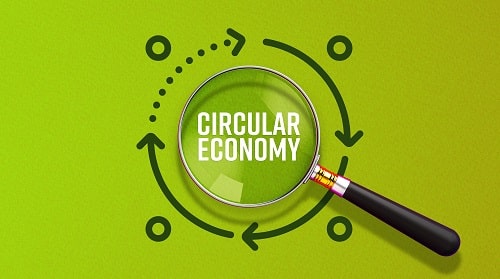Alcohol consumption can have a variety of negative impacts on workers and the wider business, so it’s essential to create a workplace culture where staff understand the health risks, don’t face pressure to drink at company events and would feel comfortable raising concerns about their own or others’ drinking.
Features
Alcohol at work: it’s time to rethink the drink
The average person spends a third of their life at work¹. That looks like around 90,000 hours over a single lifetime. As such, the working conditions we experience throughout our careers play a vital role in our health, wellbeing and quality of life.
 Photograph: iStock/sturti
Photograph: iStock/sturti
Recognising this – and driven further by a pandemic, cost of living crisis and plenty of political and economic upheaval – organisations are turning more attention to improving their staff wellbeing offer, while increasing their focus on diversity, equity, inclusion and belonging (DEIB).
It’s positive that deepening efforts across these agendas is seen more as necessity than ‘nice to have’ for many organisations today. Yet, approaches to alcohol and problem drinking in the workplace still vary.
Alcohol is a subtle foe that creates harm across all levels of consumption and adults in employment² are not only more likely to drink, but to do so more frequently and heavily than the economically inactive. The influence of Covid-19 on drinking habits also remains, with many people who were drinking heavily before the pandemic not only increasing their consumption during it but after it too.
Almost a quarter (24 per cent)³ of us are drinking at levels that increase our risk of experiencing alcohol-related harm. But what does this mean for businesses and what can they do?
Alcohol’s ripple effects
The biggest alcohol-related impact on workplaces is lost productivity. Through missed work or reduced performance, this costs the economy over £5 billion annually⁴ in England each year alone, while on the ground for an organisation with around 200 employees, alcohol harm costs them over £30,000 per annum.
Historically, alcohol problems were seen as something that only affect a small minority of dependent drinkers. But the truth is that alcohol consumption causes harm right across the spectrum. From headaches, sleepless nights and feeling ‘off’ the next day to putting pressure on our relationships and spending more money than we’d like, millions of us experience a range of alcohol-related issues. Alcohol can also worsen our mental health and increase our likelihood of experiencing anxiety and depression, as well as many long-term health conditions, including liver disease, strokes and cancer.
All of this is reflected in the workplace, as while 90 per cent of employers⁵ claim alcohol is a problem, more than 80 per cent of alcohol-related issues involve employees who are not dependent.
Hangovers of hangovers
Hangovers deliver hidden, but very real headaches for employers and according to the Institute of Alcohol Studies, are estimated to cost the UK economy up to £1.4 billion a year⁶. That’s because alcohol makes us more dehydrated, raises our blood pressure and reduces our sleep quality, which impacts our cognitive function and mental health.
While we may physically be able to go to work hungover, the odds are we will be less alert, find it harder to concentrate and make more mistakes.
However, hangovers in the workplace are common. Nearly a third⁷ (32 per cent) of us report attending work hungover in the past month, while one in 20 do this once a week and around 200,000 every day. This alcohol-related presenteeism and reduced performance is a challenge for employers to spot and to address.
Work and the world around us play their part
Organisations aren’t just troubled by the effects of alcohol – they can be part of the problem. Many workplace cultures encourage drinking, whether through informal socialising or events where the provision of – often free – alcohol is considered the norm. Research from Easy Offices⁸ found that 84 per cent of work-related social events currently involve alcohol. One in five workers also report drinking more than they wanted due to pressure from colleagues.
 Jane Gardiner is head of consultancy and training at Alcohol Change UK. Photograph: Alcohol Change UK
Jane Gardiner is head of consultancy and training at Alcohol Change UK. Photograph: Alcohol Change UK
Workplace stress is also a factor, with more than a quarter (27 per cent) of employees citing it as a reason for drinking more. Certain workers⁹, such as those in professional occupations and senior positions, are also likely to drink more and at riskier levels.
We also have big alcohol companies and portrayals in the media to thank for associating alcohol with our efforts to ‘unwind’, ‘relax’ and ‘reward’ ourselves after work. It’s no surprise that three in 10 people use alcohol to self-medicate or cope with workplace stress.
Absence and sickness
- 17 million sick days are taken every year because of alcohol
- Up to five per cent of workplace absence is alcohol-related
- Tension, as 3.5 per cent of staff report working extra hours to cover alcohol-related absence of colleagues.
Accidents and safety
- 40 per cent of industrial accidents are linked to substance misuse
- Alcohol is responsible for 20–30 per cent of all recorded accidents
- Half of all workplace fatalities involve alcohol.
 Source: Alcohol Change UK
Source: Alcohol Change UK
Generational differences
With many organisations now employing up to five generations, a new consideration for employers looking to meet the needs of an increasingly diverse workforce is that attitudes to alcohol and drinking habits are changing.
From Gen-Z (born 1997–2012) to the Silent Generation (born 1925–1945) and those in between, the role alcohol plays in their lives differs more than ever. Figures from NHS England¹º show that those aged 16–24 are least likely to drink at least once a week, while 65–74-year-olds are most likely to do so. In a recent survey,¹¹ Alcohol Change UK also found that just three per cent of people aged 18–24 believe alcohol plays a mainly positive role in society, compared with nine per cent of those aged 65+.
The relationship between alcohol and the workplace is complex, but this doesn’t stop organisations feeling its impact. Alongside their undisputed role in staff wellbeing, employers must bring the issue to the fore through culture, education and training and policy.
Cultural Audit – example questions
- How is alcohol talked about and how often?
- Is alcohol present – and encouraged – at socials and events?
- How do employees socialise?
- What is the response to drunken anecdotes?
- Do people experience sober shaming when choosing not to drink or drink less?
- Is it a safe environment for someone in recovery?
Culture first
The most important consideration for employers when addressing the relationship between alcohol and the workplace is culture.
Among the shared norms, values and attributes that define a company will be the attitudes and behaviours toward alcohol.
Cultural Audits (see panel above) are a great tool. These surveys – often anonymised to encourage honesty – uncover attitudes to alcohol across an organisation and how staff feel it factors into the work environment. They can also identify concerns about the drinking culture, such as issues with sober shaming or how comfortable staff feel about raising concerns about their own, or others’ drinking.
When shaping questions, it can be useful to consider your workplace from the perspective of a non-drinker or someone trying to cut down.
Using Cultural Audit insights to shape an approach, any efforts to shift culture and address alcohol as part of wellbeing and DEIB must come from the top down.
Leaders’ focus should be two-fold:
- Ensuring the workplace is not synonymous with drinking – that it’s not the default or expected of staff to feel ‘part of’
- Creating an environment where people feel safe and confident to come forward if they are concerned about their own or others’ drinking.
On the first point, some simple practical changes go a long way, such as not making rewards or gifts alcohol-based, providing great no- and low-alcohol alternatives at events or organising team activities that don’t revolve around drinking.
This is needed, as a third (34 per cent) of employees avoid work socials because alcohol will be present, according to research by Easy Offices.¹² Making things less alco-centric can help those choosing not to drink or drink less for whatever reason to feel more comfortable and as though they ‘fit in’ at work.
It’s all about facilitating a culture where not drinking is normalised, people don’t feel pressured to drink and sober shaming is called out. It’s not about ‘banning’ alcohol but providing sufficient choice so that those who do or don’t drink all feel included. These things are easy to implement, but really help shift alcohol from the spotlight and foster a sense of belonging for all.
On the second focus, there’s work to do. According to the mental health charity Mind,¹³ almost a third of workers say that they would not be comfortable speaking with their manager about their mental health. Similarly, stigma associated with alcohol problems is a barrier to seeking help.
Employers need to facilitate a healthy, empathic environment whereby employees who need help with their physical and/or mental wellbeing feel able to reach out and ask for advice. They need to know that support is available, what this looks like and how to access it without judgment, discrimination or repercussions.
Combined with a clear alcohol policy, a culture based on respect and sensitivity will create a safe environment where people are more likely to seek support. You could really help – even prevent someone from progressing to dependence – because they will reach out before concerns become real issues.
Knowledge is power at all levels
Beyond culture, employers are in a unique position to raise awareness about alcohol. The adage ‘you don’t know what you don’t know’ rings true, as many of us are still not aware of the recommended low-risk drinking guidelines of no more than 14 units per week, or how this translates into what we consume.
The alcohol industry also spends millions encouraging us to drink more. Just look to the adverts we see as we travel to and from work, or how it’s portrayed in our favourite TV shows and films, and it’s easy to see how fictional myths about alcohol’s ‘benefits’ have gradually been accepted as fact.
Employers therefore cannot assume the understanding people have about alcohol, but can play a major role in raising awareness, myth busting and normalising conversations about drinking.
Through proactive education and training, such as workshops, seminars and resources, organisations can make alcohol less ‘taboo’ and encourage staff to reflect on their relationship with alcohol. Topics we regularly deliver for workplaces include: the basics about alcohol; alcohol and mental health; guidance on recommended units per week; tolerance; grey area drinking; safe limits; drink driving; and the spectrum of physical, mental and social alcohol harm. Increasingly, we focus more on the benefits of mindful drinking and reducing our consumption.
Supporting managers and HR
Together with awareness raising activities, equipping line managers and HR teams with the skills and support to address alcohol in the workplace is key.
As your frontline, ensuring they have adequate training on alcohol will see them more able to:
- Spot signs of alcohol issues earlier
- Proactively address them in-line with alcohol policy
- Feel confident to have difficult conversations
- Provide reassurance to staff worried about their own or others’ drinking
- Signpost staff to resources and support available
- Ensure confidentiality and compassion
- Be clear on next steps.
Prevention and people-first policies
From health and safety and cybersecurity to flexible working, the best policies protect both organisation and employee.
Yet, alcohol-related policies are either lacking or lacklustre. The Chartered Institute of Personal Development¹⁴ found that 43 per cent of workplaces do not have a specific alcohol policy and less than a third (27 per cent) have defined procedures for managing alcohol problems among their staff. At the same time, many organisations still treat alcohol use as a disciplinary issue rather than a health, safety and wellbeing concern. While this may be important for industries where a ‘zero tolerance’ stance is needed, for the wider working world it’s time to take a more proactive, preventative and people-first approach.
When looking to create, or refine, an alcohol policy, a greater emphasis should be placed on wellbeing. By setting out the boundaries for behaviour, processes for raising concerns, what support is available (such as time off to attend therapy), and reassuring staff about confidentiality, employers can create a fear-free environment that enables people to seek help. Any alcohol policy needs to apply to everyone all the time and, like every policy, is only as effective as the training and education provided alongside it.
Beyond the basic responsibility on employers to look after their staff, there are real performance and bottom-line benefits on offer when addressing alcohol’s relationship with workplaces. From attracting and retaining a diverse mix of skilled talent to fostering healthy, happy and high-performing teams, a forward-thinking approach to alcohol will help you stay ahead in an increasingly competitive landscape.
 Source: Alcohol Change UK
Source: Alcohol Change UK
Tips for spotting the signs
In the workplace
- Frequent late arrivals/returns from lunch
- Regular short absences, often on Mondays or Fridays
- Erratic behaviour – from irritability and aggression to overly excited and inappropriate
- Excessive encouragement of colleagues to drink/go to the pub
- Smell of alcohol on breath
- Isolating or avoiding socialising
- Dismissiveness/defensiveness of drinking
- Intoxication during work, e.g. takes longer or has accidents
- Concerns expressed by colleagues.
In remote workers
- Missing meetings
- Frequent absence
- Demeanour
- Missing deadlines
- Camera frequently turned off
- Talking often about alcohol, drinking or being hungover
- Concerns expressed by colleagues.
Jane Gardiner is head of consultancy and training at Alcohol Change UK.
For more information on alcohol in the workplace, or for impartial information and support about your own or someone else’s drinking, visit:
References
- Gettysburg College, tinyurl.com/y4dvyr8x
- ONS, Adult drinking habits in Great Britain, tinyurl.com/bdf4fxb5
- NHS Digital, Health Survey for England, 2022 Part 1, tinyurl.com/33whasxz
- Institute of Alcohol Studies, tinyurl.com/2adyws3c
- BMA, Alcohol, drugs and the workplace – The role of medical professionals, tinyurl.com/2p93zrdu
- Institute of Alcohol Studies, tinyurl.com/3nd5vamk
- Aviva, UK employees admit that regular drinking affects their jobs, tinyurl.com/3ysvkksf
- HR Review/Easy Offices, 34% of employees avoid work socials due to alcohol, tinyurl.com/2n35p98z
- ONS, Adult drinking habits in Great Britain, tinyurl.com/bdf4fxb5
- NHS England, Health Survey for England, 2022 Part 1: Data tables, tinyurl.com/yc2fswsk
- Alcohol Change, UK ready to talk about alcohol harm as our attitude to drinking sobers up, tinyurl.com/c2nnnksw
- HR Review/Easy Offices, 34% of employees avoid work socials due to alcohol, tinyurl.com/2n35p98z
- Mind, tinyurl.com/2xbr2amu
- CIPD, Managing drug and alcohol misuse at work, tinyurl.com/3ty3b3bt
FEATURES

How to build circular economy business models
By Chloe Miller, CC Consulting on 07 April 2025
Widespread adoption of a circular economy model by business would ensure greater environmental and economic value is extracted and retained from raw materials and products, while simultaneously reducing carbon emissions, protecting the environment and boosting business efficiency and reputation.

What does the first year on an accelerated net zero path have in store for UK businesses?
By Team Energy on 07 April 2025
The UK is halfway to net zero by 2050 and on a new, sped-up net zero pathway. In light of this, Graham Paul, sales, marketing & client services director at TEAM Energy, speaks to TEAM Energy’s efficiency and carbon reduction experts about the future of energy efficiency and net zero in the UK.

Aligning organisational culture with sustainability: a win, win for the environment and business
By Dr Keith Whitehead, British Safety Council on 04 April 2025
The culture of an organisation is crucial in determining how successfully it implements, integrates and achieves its sustainability and environmental goals and practices. However, there are a number of simple ways of ensuring a positive organisational culture where everyone is fully committed to achieving excellent sustainability performance.



